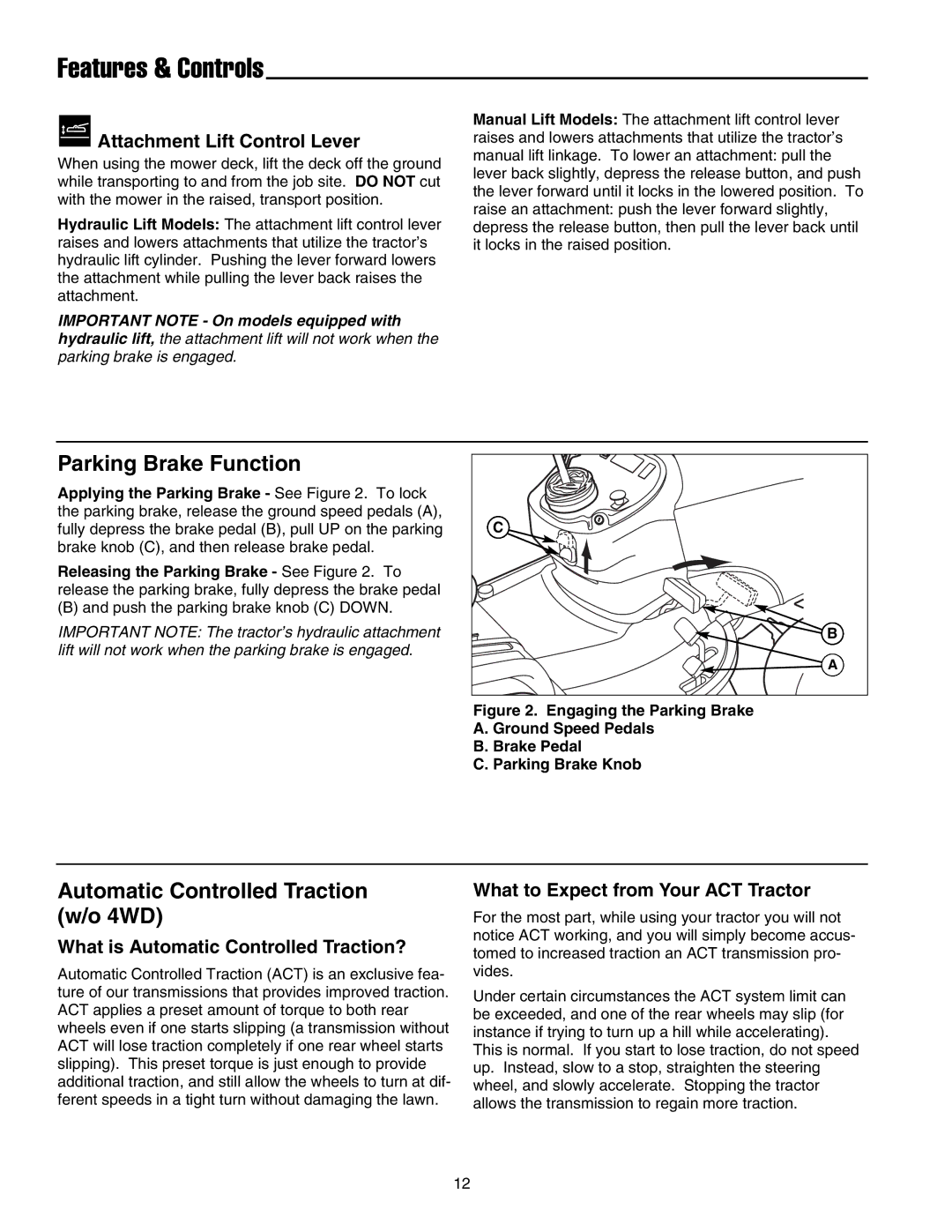1700, 2700, 400 specifications
The Snapper series of mowers, including the Snapper 1700, 2700, and 400 models, represents a blend of power, efficiency, and innovative technology designed for lawn care enthusiasts and professionals alike. Each model offers unique features tailored to meet diverse mowing needs, ensuring top performance and ease of use.The Snapper 1700 is ideal for residential yards and smaller properties. It is equipped with a reliable engine that delivers smooth, consistent power to tackle various grass types. The mower features a compact design, making it easy to maneuver around obstacles such as flower beds and trees. One of its standout attributes is the innovative easy-to-use height adjustment mechanism, allowing users to effortlessly change cutting heights to best suit their lawn conditions. Additionally, the Snapper 1700 boasts a robust cutting deck that ensures an even cut, resulting in a professional-grade finish.
The Snapper 2700 is a step up from the 1700, designed for users who require more power and capacity. This model comes with a larger cutting width, allowing for quicker mowing of expansive lawns. Enhanced features include an advanced mower deck technology that optimizes grass clipping discharge, helps to reduce clumping, and improves overall efficiency. The Snapper 2700 also incorporates ergonomic controls, providing comfort during prolonged use, and its durable construction ensures longevity. Furthermore, its rear-wheel drive system enhances traction, particularly on uneven terrain.
For those managing larger properties or commercial landscapes, the Snapper 400 offers premium performance and advanced technology. This model features a high-powered engine for maximum cutting performance, even in challenging conditions. The Snapper 400 is equipped with an intuitive digital display, providing essential information such as battery life and maintenance reminders, ensuring optimal performance over time. The mower's heavy-duty frame and reinforced deck enhance durability, making it suitable for rigorous tasks. It also boasts an innovative mulching capability, enabling users to finely chop grass clippings and return them to the soil as nutrient-rich mulch.
In summary, the Snapper 1700, 2700, and 400 models cater to a wide range of lawn care needs, from small yards to expansive landscapes. Each model combines innovative features, advanced technology, and durable construction, making them reliable choices for homeowners and professionals seeking superior mowing solutions.

